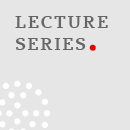Video of the Lecture "Nürnberg 2.0? Die Kriege in Osteuropa vor Gericht" by Angelika Nußberger
In cooperation with L.I.S.A and the Carl Friedrich von Siemens Foundation
03.03.2025
Angelika Nußberger's lecture "Nürnberg 2.0? Die Kriege in Osteuropa vor Gericht" presented as part of the KFG's lecture series at and in cooperation with the Carl von Siemens Foundation on January 8, 2025, is now available as a video podcast on the Gerda Henkel Foundation's Science Portal L.I.S.A.
The lecture titled "Nürnberg 2.0? Die Kriege in Osteuropa vor Gericht" deals with the question of the extent to which the belief in universal legal norms and the regulating and reconciling power of the courts has proven itself in reality after the end of the Cold War. The period between 1990 and today provides many successful examples. Most of the wars that were fought in the post-Soviet space and in the disintegrating Yugoslavia were brought before the courts. Some judgments, such as the Bosnian genocide case before the International Court of Justice or the case of Georgia against Russia before the European Court of Human Rights, are groundbreaking, but at the same time highly controversial. Where urgent decisions have been made, they have not been able to stop the violence. The outcome of what has been achieved after high hopes at the beginning is rather modest and defines the framework for the expectations for dealing with the current war of aggression by Russia against Ukraine.
Angelika Nußberger | Nürnberg 2.0? Die Kriege in Osteuropa vor Gericht
Angelika Nußberger is professor of international law, public law and comparative law at the University of Cologne and founding director of the Academy for European Human Rights Protection, Vice-President of the Constitutional Court of Bosnia and Herzegovina, member of the Venice Commission of the Council of Europe and the Institut de droit international. She was a judge at the European Court of Human Rights elected on behalf of Germany from January 2011 to December 2019 and its Vice-President from February 2017. For her work at the KFG it is important that she has not only studied law, but also literature (German, Russian and French) in Munich, Würzburg, Moscow (1985 study visit) and Boston (visiting researcher at Harvard University 1994/1995).


